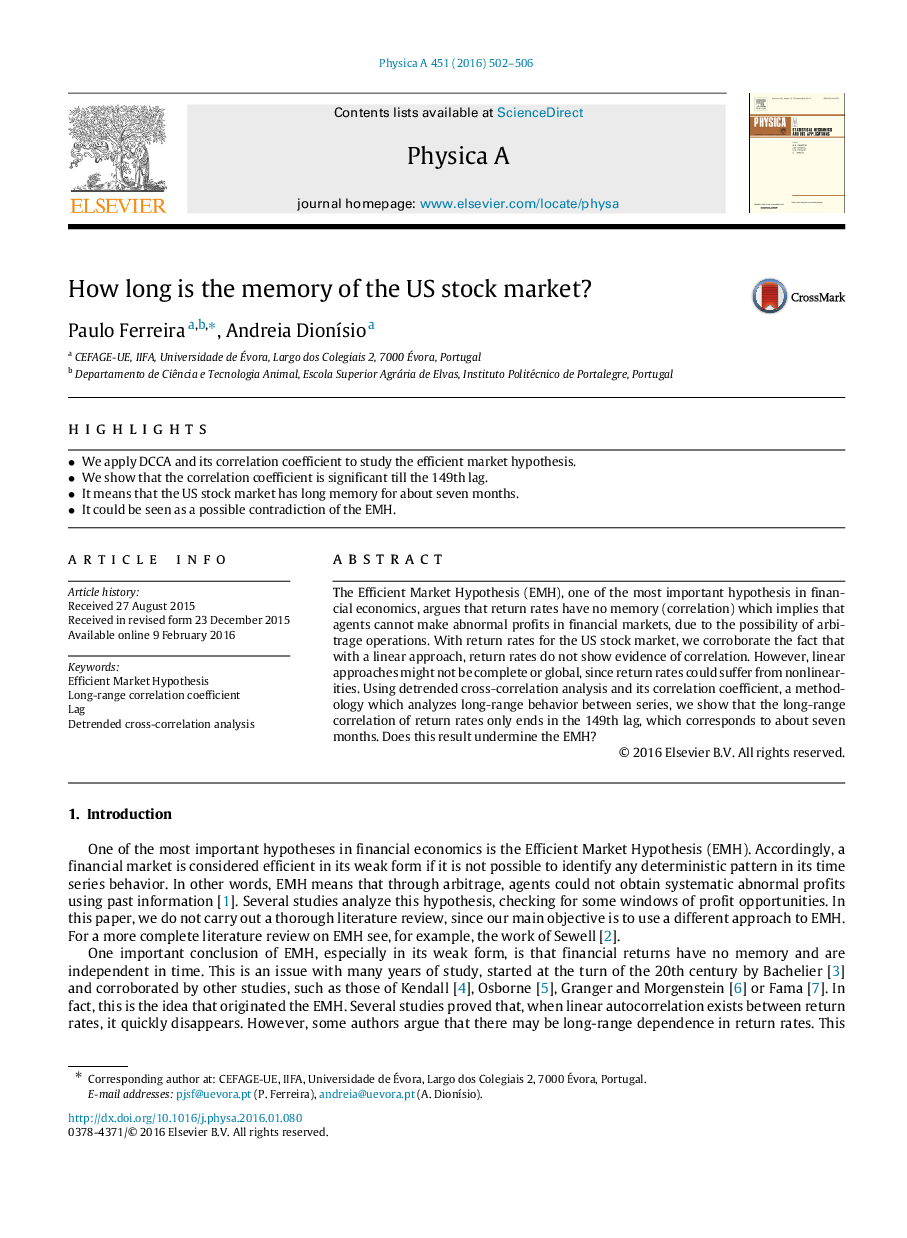| Article ID | Journal | Published Year | Pages | File Type |
|---|---|---|---|---|
| 976607 | Physica A: Statistical Mechanics and its Applications | 2016 | 5 Pages |
•We apply DCCA and its correlation coefficient to study the efficient market hypothesis.•We show that the correlation coefficient is significant till the 149th lag.•It means that the US stock market has long memory for about seven months.•It could be seen as a possible contradiction of the EMH.
The Efficient Market Hypothesis (EMH), one of the most important hypothesis in financial economics, argues that return rates have no memory (correlation) which implies that agents cannot make abnormal profits in financial markets, due to the possibility of arbitrage operations. With return rates for the US stock market, we corroborate the fact that with a linear approach, return rates do not show evidence of correlation. However, linear approaches might not be complete or global, since return rates could suffer from nonlinearities. Using detrended cross-correlation analysis and its correlation coefficient, a methodology which analyzes long-range behavior between series, we show that the long-range correlation of return rates only ends in the 149th lag, which corresponds to about seven months. Does this result undermine the EMH?
